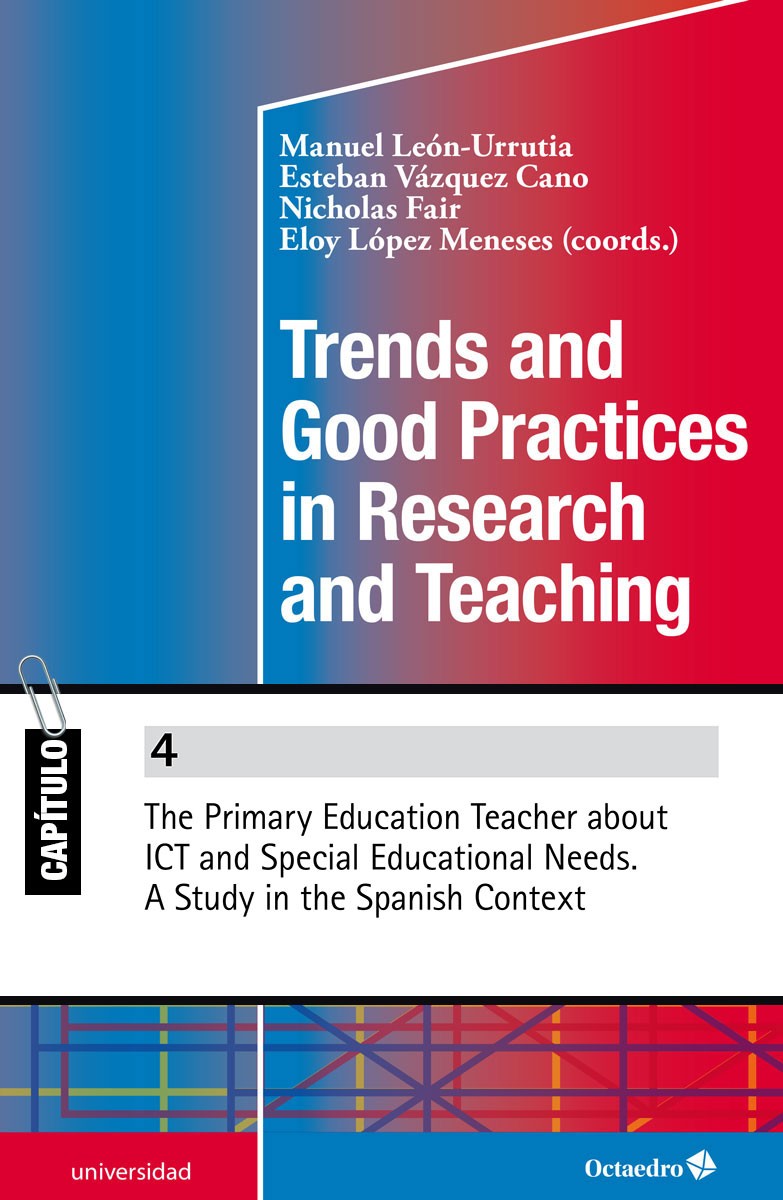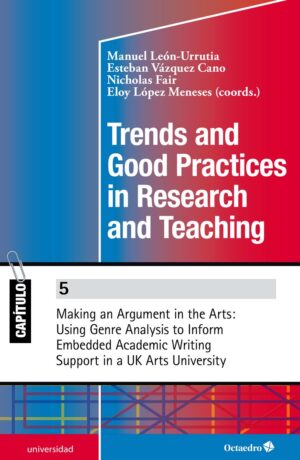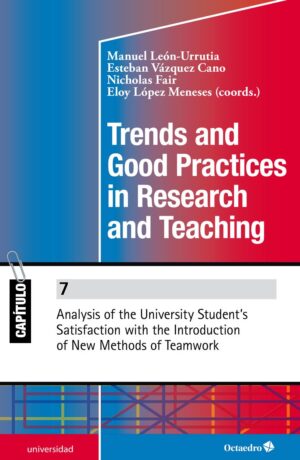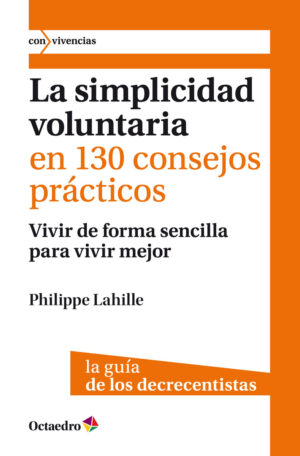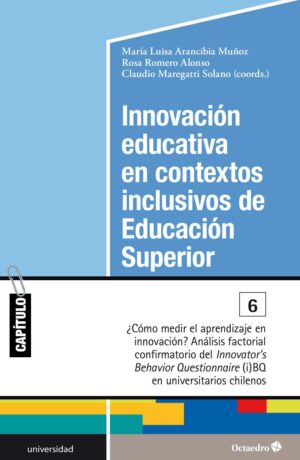FICHA TÉCNICA
Fecha de publicación:
01/01/2020
DOI: https://doi.org/10.36006/16184-04
Título del libro: Trends and Good Practices in Research and Teaching
URL del libro: Trends and Good Practices in Research and Teaching
ISBN:
DOI del libro: https://doi.org/10.36006/16184
Abstract
One of the main challenges of international organizations, specialized in educational issues, is the measurement and diagnostic of teachers’ digital competences, both in primary and secondary education. Within this context, and with the aim of looking at one of these theoretical premises, this study aimed to identify the degree of training and technological knowledge of primary school teachers in Spain with respect to the use of ICT with individuals with disabilities (functional diversity). A descriptive ex post-facto research method was used, where the sample comprised 777 teachers. An ad-hoc questionnaire was used as the data-collection instrument. The results revealed the low skill levels of the teachers with respect to the use of ICT with students with disabilities, where the level of training of the teaching staff was determined by personal (gender, age), professional (teaching experience) or educational (qualifications) variables. Among the conclusions, we highlight that teachers highly believe that ICT are useful resources for the training of people with disabilities. However, their technical management and educational use of the ICT, computers and the Internet had an effect on the knowledge they mentioned having on the use of the ICT with individuals with disabilities. This knowledge was not sufficient, according to the teaching staff. Also, the female teachers were perceived as having more knowledge than the male teachers.
Palabras clave
Autores
Cómo citar
Fernández Batanero, José M. (2019). The Primary Education Teacher about ICT and Special Educational Needs. A Study in the Spanish Context. En León-Urrutia, M., Vázquez Cano, E., Fair, N., López Meneses, E. (coords.) Trends and Good Practices in Research and Teaching. A Spanish-English Collaboration. Barcelona: Octaedro. https://doi.org/10.36006/16184-04
Referencias bibliográficas
- Almerich, G., Suárez, J. M., Orellana, N., & Díaz, M.I. (2010). Relationship between the integration of information and communication technologies and knowledge of them, Revista de Investigación Educativa, 28 (1) ,31-50.
- Alper, M. & Goggin, G. (2017). Digital technology and rights in the lives of children with disabilities, New Media & Society. Avalailable at <http://journals.sagepub.com/doi/full/10.1177/1461444816686323>.
- Altinay A. & Altinay, Z. (2015). Examination on ICT integration into Special Education Schools for Developing Countries, TOJET: The Turkish Online Journal of Educational Technology, 14 (3), 70-72.
- Cabero, J., Fernández Batanero, J. M. & Barroso, O. (2016). Students of the Teaching degree: ICT and disability, Revista Electrónica de Investigación Educativa, 18 (3), 106-120. Avalailable at <http://redie.uabc.mx/redie/article/view/965>.
- Cabero, J., Fernández Batanero, J. M. & Córdoba, M. (2016). Knowledge of the ICT applied to individuals with disabilities. Construction of a diagnostics instrument, Magis, Revista Internacional de Investigación en Educación, 8, 17, 157-176. doi: 10.11144/Javeriana.m8-17.ctap.
- Hollier, S. (2017). Technology, education and access: A ‘fair go’ for people with disabilities. 14th International Web for All Conference, W4A.
- Homero, G., Tejedor, F. J., & Calvo, M. I. (2017). Meta-analysis on the effect of education software on students with special education needs, Revista de Investigación Educativa, 35 (1), 35-52.
- Luque, D. & Rodríguez, G. (2009). Information and Communication Technology used with disabled students: a teaching approach, Revista Iberoamericana de Educación, 49 (3), 1-8.
- Mateo, J. (2004). Ex post-facto research. In Rafael Bisquerra-Alzina (coord.), Metodología de la investigación educativa. Madrid: La Muralla, (195-230).
- Morales, P. T. & Llorente Cejudo, M. C. (2016). Initial training of the teaching staff on the use of Information and Communication Technologies (ICT) for the education of the disabled, Digital Education Review, 30, 123-134.
- O’Dwyer, L. & Bernauer, J. (2014). Quantitative Research for the Qualitative Researcher. California: Sage.
- Roig, R.; Ferrández, S.; Rodríguez-Cano, C., & Crespo, M. (2012). The use of the ICT in the Special Education Classroom: teacher’s perception. In Navarro, J., Fernández, M. T., Soto, F. J., & Tortosa, F. (coords.), Flexible responses in diverse educational contexts. Murcia: Consejería de Educación, Formación y Empleo. Avalailable at <http://diversidad. murciaeduca.es/publicaciones/dea2012/docs/ rroig.pdf>.
- Suriá, R., Martínez, D., & Ordoñez, T. (2014). ICT, teaching and disability: do teachers feel prepare to support disabled students in the use of the ICT in the classrooms? In Arnaiz, P., Hurtado, M. D., & Soto, F. J. (coords.) 25 Años de integración escolar en España: tecnología e inclusión en el ámbito educativo, laboral y comunitario. Murcia: Consejería de Educación, Formación y Empleo.
- Tello, I. & Cascales, A. (2015). The ICT and specific needs of educational support: analysis of the teacher’s ICT competences, RIED, 18 (2), 355-383.
- Toledo, P. (2013). The technologies of information, communication and inclusive education. In Nuevos escenarios digitales. las tecnologías de la información y la comunicación aplicadas a la formación y desarrollo curricular. Madrid: Pirámide, pp. 411-427.
- Turner-Cmuchal, M. & Aitken, S. (2016). ICT as a tool for supporting inclusive learning opportunities, Perspectivas Internacionales sobre la Educación Inclusiva, 8, 159-180.
- Vladimirovna, S. & Sergeevna, O. (2015). Features of the Information and Communication Technology Application by the Subjects of Special Education, International Education Studies, 8 (6). Available at <http://10.5539/ies.v8n6p162>.
Mostrar referencias bibliográficas
- Almerich, G., Suárez, J. M., Orellana, N., & Díaz, M.I. (2010). Relationship between the integration of information and communication technologies and knowledge of them, Revista de Investigación Educativa, 28 (1) ,31-50.
- Alper, M. & Goggin, G. (2017). Digital technology and rights in the lives of children with disabilities, New Media & Society. Avalailable at <http://journals.sagepub.com/doi/full/10.1177/1461444816686323>.
- Altinay A. & Altinay, Z. (2015). Examination on ICT integration into Special Education Schools for Developing Countries, TOJET: The Turkish Online Journal of Educational Technology, 14 (3), 70-72.
- Cabero, J., Fernández Batanero, J. M. & Barroso, O. (2016). Students of the Teaching degree: ICT and disability, Revista Electrónica de Investigación Educativa, 18 (3), 106-120. Avalailable at <http://redie.uabc.mx/redie/article/view/965>.
- Cabero, J., Fernández Batanero, J. M. & Córdoba, M. (2016). Knowledge of the ICT applied to individuals with disabilities. Construction of a diagnostics instrument, Magis, Revista Internacional de Investigación en Educación, 8, 17, 157-176. doi: 10.11144/Javeriana.m8-17.ctap.
- Hollier, S. (2017). Technology, education and access: A ‘fair go’ for people with disabilities. 14th International Web for All Conference, W4A.
- Homero, G., Tejedor, F. J., & Calvo, M. I. (2017). Meta-analysis on the effect of education software on students with special education needs, Revista de Investigación Educativa, 35 (1), 35-52.
- Luque, D. & Rodríguez, G. (2009). Information and Communication Technology used with disabled students: a teaching approach, Revista Iberoamericana de Educación, 49 (3), 1-8.
- Mateo, J. (2004). Ex post-facto research. In Rafael Bisquerra-Alzina (coord.), Metodología de la investigación educativa. Madrid: La Muralla, (195-230).
- Morales, P. T. & Llorente Cejudo, M. C. (2016). Initial training of the teaching staff on the use of Information and Communication Technologies (ICT) for the education of the disabled, Digital Education Review, 30, 123-134.
- O’Dwyer, L. & Bernauer, J. (2014). Quantitative Research for the Qualitative Researcher. California: Sage.
- Roig, R.; Ferrández, S.; Rodríguez-Cano, C., & Crespo, M. (2012). The use of the ICT in the Special Education Classroom: teacher’s perception. In Navarro, J., Fernández, M. T., Soto, F. J., & Tortosa, F. (coords.), Flexible responses in diverse educational contexts. Murcia: Consejería de Educación, Formación y Empleo. Avalailable at <http://diversidad. murciaeduca.es/publicaciones/dea2012/docs/ rroig.pdf>.
- Suriá, R., Martínez, D., & Ordoñez, T. (2014). ICT, teaching and disability: do teachers feel prepare to support disabled students in the use of the ICT in the classrooms? In Arnaiz, P., Hurtado, M. D., & Soto, F. J. (coords.) 25 Años de integración escolar en España: tecnología e inclusión en el ámbito educativo, laboral y comunitario. Murcia: Consejería de Educación, Formación y Empleo.
- Tello, I. & Cascales, A. (2015). The ICT and specific needs of educational support: analysis of the teacher’s ICT competences, RIED, 18 (2), 355-383.
- Toledo, P. (2013). The technologies of information, communication and inclusive education. In Nuevos escenarios digitales. las tecnologías de la información y la comunicación aplicadas a la formación y desarrollo curricular. Madrid: Pirámide, pp. 411-427.
- Turner-Cmuchal, M. & Aitken, S. (2016). ICT as a tool for supporting inclusive learning opportunities, Perspectivas Internacionales sobre la Educación Inclusiva, 8, 159-180.
- Vladimirovna, S. & Sergeevna, O. (2015). Features of the Information and Communication Technology Application by the Subjects of Special Education, International Education Studies, 8 (6). Available at <http://10.5539/ies.v8n6p162>.
